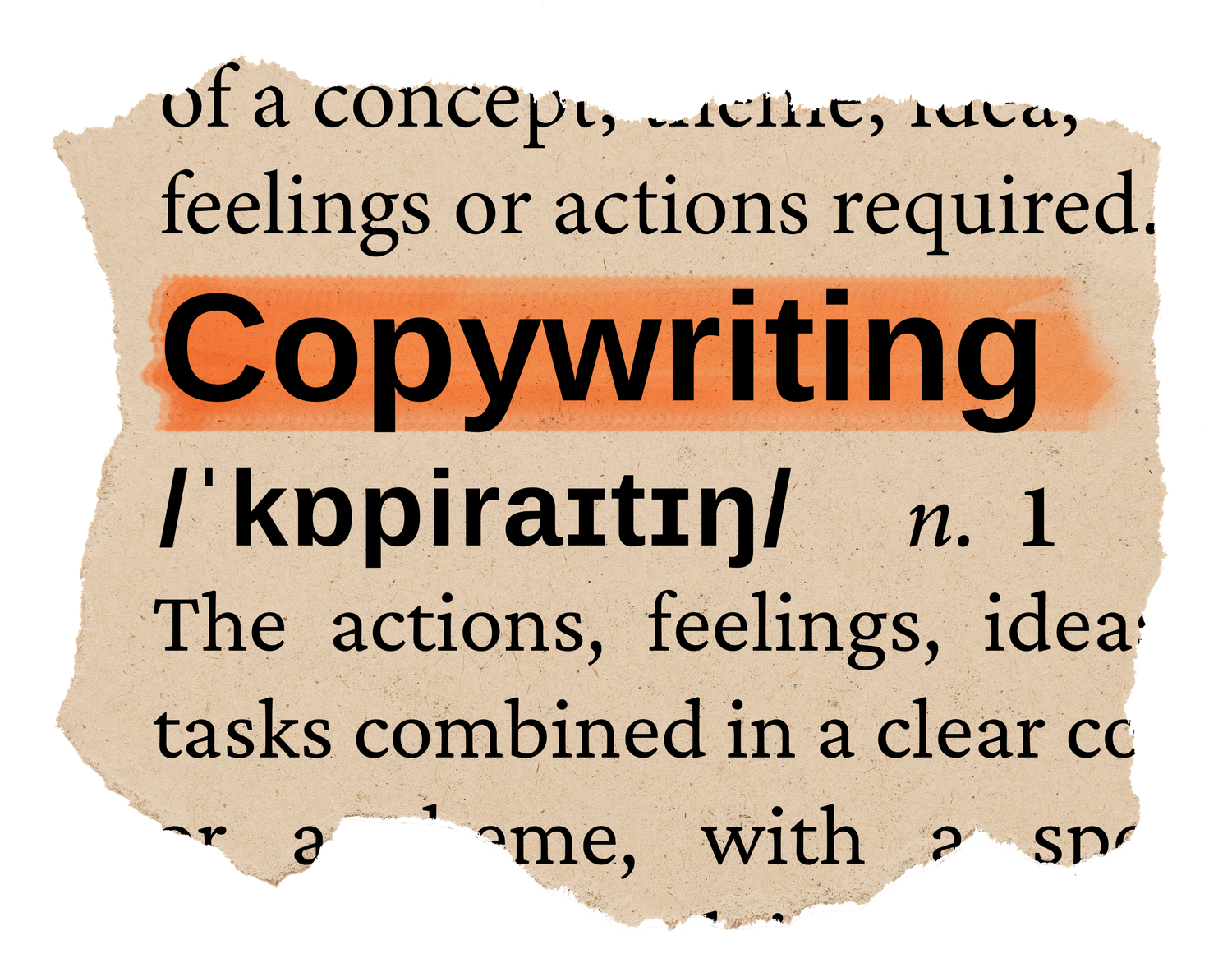How To Become a Successful Content Creator in 2024

Are you interested in becoming a content creator? Perhaps you’ve seen other content creators posting on the internet, attracting lots of traffic (and money) and thought to yourself, “I’d like to do that!”. You’re in luck. In this guide, we’ll give you the tips and tricks to become a successful content creator in 2024.
For businesses wanting to gain traffic, generate leads and boost sales, content creation proves to be one of the most important elements of any content strategy.
And behind the scenes, content creators are the people facilitating this goal, increasing online visibility through a series of well-laid plans.
As we explore content creation, we’ll define what it really means, and what the different types of content creators are, and provide you with steps on how to become one.
Looking for something in particular? Skip ahead using the table of contents below:
- What is a content creator?
- Tasks of a content creator
- What are the different types of content creators?
- How much do content creators earn?
- 8 steps to becoming a successful content creator
- Requirements for becoming a content creator
- Want to learn more about digital communication?
- Final thoughts
- FAQ
What is a content creator?
If we boil the term right down to its simplest form, then a content creator can be described as someone who creates and publishes digital content.
But that could apply to anyone.
To expand on this a tad further, a professional content creator is someone who is tasked with building and extending a brand’s digital presence.
Content creators can work in-house with a company, for an agency, as influencers or freelance content creators.
The goal for any content creator, no matter what capacity they operate within, is to build an audience or following and generate revenue.
And while their individual ethics or goals may vary and the approach they take may differ, all brands are working towards becoming profitable businesses.
And make no mistake, the content creator economy is booming!
There are reportedly 303 million people who consider themselves content creators, with no signs of this number slowing down.
In 2022, the creator economy was worth an estimated $104 billion.
Tasks of a content creator
We’ve already established that a content creator does more than just make attractive posts for content platforms (although that’s part of it) but what are the other content creator's responsibilities?
- Developing a content strategy
- Researching content ideas
- Create written, visual or audio content for social media platforms
- Develop content calendars
- Engage with social media followers and manage community
- Perform basic SEO tasks
- Network and collaborate with affiliates or other content creators/outlets
As you can see, the content creator's job description consists of a variety of tasks.
This is because it’s not easy to gain organic traffic in a piece of content from search engines or command a loyal online following.
It doesn’t happen overnight or without learning the nuances of content and how it works across different platforms.
But if you’re dedicated to becoming a content creator, it’s not only possible but it’s something the majority of companies are investing in.
Next up, let’s look at the different types of content creators.
What are the different types of content creators?
A leading benefit of entering the digital marketing space is just how varied the professions are.
It seems that anybody with a disposition in any field or even a strong passion can create digital content that has the potential to build an audience.
Often, once the person or brand has gained enough traction, there's also the opportunity to monetise their content.
So what are the main types of content creators in 2024?
- Content writer
- Videographer
- Photographer
- Podcast host
- Social media influencer
- Designers and artists
Content writer/copywriter
Content writers are responsible for producing engaging, original content that is typically long-form, such as blogs, articles and white papers.
Copywriters then, are more focused on conversion-oriented content such as emails, brochures, audio and video scripts, web copy and social media posts.
Despite the technical differences between content writers and copywriters, the two often overlap when producing digital content.
The most common format for content writers is blogs.
Blogging is a leading source of generating organic traffic and boosting SEO to help companies rank higher.
So if you choose to be a writer, expect to do lots of research and flex your linguistic prowess.
You’ll also want to get familiar with content creation, particularly photos and videos, as these will be the native content format for platforms like Instagram or TikTok.
Videographer
As a videographer, you’re responsible for recording and editing videos that align with a brand’s vision.
As far as content platforms are concerned, YouTube has reigned dominant for years.
But, video content has grown more popular over the years due to its accessible and engaging nature.
We now see video content being produced for Facebook or Instagram or solely short-form video-based apps like TikTok.
To give an idea of the video’s appeal, in 2022 it had an estimated 92% audience reach.
Photographer
Photographers are the currency of content platforms like Pinterest and Instagram.
Imagine a world without luscious, perfectly realised travel and food photography presented in glorious 4K clarity.
We don’t want to either.
For the longest time, static images have captured social media scroller’s attention and that trend is set to continue.
Companies need high-quality photos for apps and websites to bring their ideas to life in a clean, simple and effective way.
Podcast host/streamer
One of the newer content creator titles is that of Podcast Host or Podcaster where you’ll be interviewing guests and providing an engaging commentary for your listeners.
There are almost 465 million podcast listeners globally, with an industry market size of close to $24 billion.
Much of this rise in popularity can be attributed to the way we consume content now - on the go.
Smart devices are almost assigned at birth (let’s be honest) which means people have access to content virtually anywhere and at any time.
This makes listening or watching content a whole lot easier.
Podcasts appease the on-the-go lifestyle that many of us live and it’s created a huge market for content creators looking to share their voice.
As with many content types, podcasting crosses over into videography (live streams) and even content writing (script writing).
And there’s no limit to what you can create or stream.
Even videogame streamers and commentators have amassed large followings through apps like Twitch.
Influencer
Social media influencers are people with a large online follower count and big social networks who are considered trustworthy and viewed as an authority in social platforms, increasing engagement rate.
Influencers leverage their position to promote messages, products and services for themselves or on behalf of a company/brand.
And it works.
In 2024, the global influencer market is set to top $21 billion, which has doubled since 2019.
There are various types of influencers too ranging from nano (people with under 10,000 followers) to mega (people with over 1 million followers).
As an influencer, you’re free to dabble in several types of content in different social media channels.
From different content production and creative services such as writing blogs to recording videos to hosting interviews or offering coaching - if people want it, you’ll find an audience.
Consumers have always valued the opinions of others, be it friends, family or even strangers who have had an experience with a product or service they want to try.
So it makes sense that influencer marketing strategy works so well from a practical standpoint with their valuable content creation skills.
Designers/artists
Rounding off our list of different content creators are who many might consider the OGs.
Designers and artists have brought visual flair to the world for thousands of years.
From sculptures to painters to fashionistas, the internet has been set ablaze by these types of creators since its inception.
Aside from the obvious visual content appeal of producing stunning designs, truly remarkable creators understand how to compose their content in a way that tells an evocative and compelling story.
How much do content creators earn?
The content creation process has many paths and skills depending on your niche, which makes it hard to tie down a firm salary.
If we look at Zippia, they report the average content creator's salary in the US at $61,988.
But it really depends on what type of content creator you are.
To get a true picture of what you can expect to earn, you’ll need to dig into the specifics of each platform and take into account other factors, such as:
- The scope of the work and required resources. This could involve writing, recording, photography, editing or using costumes,
- How long the project will be? It might be a one-off post or multiple weeks.
- The size of your following and preferred platform.
- Whether you’re an established brand or starting out.
Most platforms will have earning guidelines, for example, TikTok’s Creator Fund will net you between 2 and 4 cents for every 1000 views (approx $20 to $40 per million views).
But then TikTok superstar Charlie D’Amelio, makes a reported $17.5 million annually from the platform, due to her immense audience size and brand authority.
On YouTube, creators earn around $18 on average per 1000 views but if you’re Mr Beast (the most popular YouTuber) then this looks more like $54 million per year.
John Morrow, the founder of SmartBlogger, was making six figures per year writing blog posts, charging on average $2500 per post.
The bottom line is this - content creators have unlimited earning potential but it takes time to build your audience and create fruitful brand partnerships that unclose the real money.
8 steps to becoming a successful content creator
No matter which type of content creator you choose to be, there are a few steps to follow to keep you on the right path.
Whether that’s a videographer, a writer or an influencer, this is how you do it:
1. Figure out your niche
Most people have a sense of what they’re good at.
It might be a lifelong hobby or a passive interest you keep up with.
Your niche could be tied to your current profession or you’ve accumulated a host of knowledge before that in another career.
A quick brainstorming session will uncover all of your talents, even the dormant ones.
These serve as an indicator of the type of content you can create long-term.
Whatever niche you land on, remember that you’ll be doing it a lot.
So choose something you’re truly passionate about to keep you focused along the journey.
2. Pick a content creator type and develop skills
What type of content creator do you want to be?
Even if you’ve never written a blog post, you might have a keen sense of how to communicate and a love for language.
Or, you’ve dabbled with amateur photography but want to learn more about the technical aspects.
Luckily for anyone alive now, you can find courses and tons of free resources online to help build up your knowledge and learn new skills.
And when you’re not learning, try practising with mockups and trial runs.
As a writer, you can pick brands you know and love and try reworking an ad, email or blog.
Videographers can do the same by practising shoots and sampling editing software.
3. Finding your audience
The next step is figuring out who your target audience is.
This will help you narrow down the type of content people are readily watching, reading or listening to, so you can generate fresh content ideas that resonate with them and draw their attention.
Identifying your audience is crucial because the last thing you want is to spend time on content that ends up being distributed to the wrong people and falls flat.
4. Choose the right platform
Depending on your niche, certain digital platforms will suit you better than others.
For example, fitness tips work great as videos but also work well with an accompanying blog.
YouTube is the perfect place to post video content.
Facebook has the largest user base and is the number one channel for businesses to promote ads.
Instagram lets you post images or short, engaging videos that can be shared efficiently.
Take time to learn the nuances of each platform and settle on one or two to invest time in.
The upside to creating content is there are already people waiting in line to consume it, provided it’s what they want of course.
Currently, there are over 4.8 billion social media users, that’s over half the planet actively browsing social media apps.
All you need to figure out is where your audience spends their time and what type of content they prefer.
5. Design a content plan
A content plan details a clear picture of what you need to do and how you’re going to do it.
If you’re working as part of a team or agency, content plans help align everyone to know what’s happening and when.
For an individual, it keeps you accountable and is useful for tracking progress, setting goals and staying on top of content creation.
Consider these questions for your content plan:
- Who is the audience?
- What content format will it be?
- What problem does it solve?
- Who will be creating the content?
- What are the measurements for success?
- What are the associated costs?
6. Grab some tools
Creating content, like any skill, takes effort and time to master.
Fortunately, very clever people at innovative companies make it their mission to assist you in this task through brilliant apps and services.
Here are a few content creation tools to guide your journey:
Canva
This free-to-use graphic design application is insanely good.
You can create virtually anything here, from presentations to social media posts to infographics and videos.
Most users will find enough value in the free version but for €99.99 per year, you’ll get access to brand kits and a suite of professional templates and tools.
Grammarly
A free writing assistant to help keep your copy on point.
Grammarly offers corrections for grammar, spelling mistakes and more across all of your writing applications, including Google Docs, email clients and social media apps.
Even if content writing isn’t your main focus, you’ll inevitably have to write which makes writing tools a must-have.
Google Ads can help promote your content whereas Google Drive gives access to Word documents, spreadsheets and presentation software, all of which can be shared or collaborated with other professionals.
Google reigns supreme as the most popular choice for many people so it’s a good idea to become fluent with their tools.
7. Create an online portfolio
Most businesses have a website to show their products and services to potential clients.
The same applies to content creators, but if the idea of building (or paying for) a website is too daunting, then opt for a portfolio site at a minimum.
Portfolios are an opportunity to showcase your talent to clients and collaborators and are free to make.
Include recent projects and a bio that explains a bit about yourself and what your unique selling points are.
8. Put yourself out there
Take a long hard look at yourself in the mirror and repeat this: “I am a content creator.”
Say it until you believe it with every fibre of your being.
Now go forth and tell everyone that you are a full-time content creator!
You can find clients pretty much anywhere, here are a few places to start:
- Email outreach
- Social media groups on Facebook and LinkedIn
- Reddit forums
- Blogging platforms like Medium
- Freelancer bidding sites like Upwork and Fiverr
Take time on these platforms to gradually build an audience by interacting and networking with fellow creatives and your target audience.
As you rack up more experience in both posting/measuring engagement and picking up projects, you’ll open the door to improving your knowledge and gaining credibility.
All of which will eventually lead to more work and more money.
Requirements for becoming a content creator?
In a word, no.
As we’ve outlined in the previous steps, anyone with a strong desire and a plan can become a successful content creator.
But it’s worth saying that you’ll do no harm to yourself by choosing to expand your knowledge and skill areas.
Not only will courses and resources sharpen your skills, but by knowing more you can increase your service offerings.
For example, we offer an SEO and Content Marketing Crash Course to teach you how to optimise your content and attract more traffic.
Once you’re comfortable with how to do this, you can offer it as part of your services.
As you learn and develop further skills in your industry, your confidence increases and your clients get the benefit of your education.
The creative industry is always evolving as consumer habits change, and new technology influences how content is produced and distributed.
The more savvy you are with these changes, the better.
Want to learn more about digital communication?
In today's fast-paced world, digital communication has become a ubiquitous part of our daily lives.
From email to social media, digital platforms provide instant connectivity, facilitating seamless interaction and collaboration across distances.
This course will teach you how to create powerful messages and communicate online using data.
6 modules | 72 lessons | 21 videos | 6 tests | 6 exercises
- Module 1 - Persuasive digital communication in the digital age
- Module 2 - Crafting effective digital communications
- Module 3 - Data-informed digital communications
- Module 4 - Communicating your values and values
- Module 5 - Planning and executing effective strategic communications
- Module 6 - Reflecting and refining
Final thoughts
Being a content creator is a rewarding career.
You get to tap into your creativity while producing unique, compelling work for clients that can have a real impact on the world around you.
Oh, and get paid for it.
The outlined steps in this blog will guide you on the path to becoming a successful content creator, just remember to find your niche, find your audience, make a plan and put it to work.
And finally, keep growing.
FAQ
1. Which types of content creators do you get?
There are many different types of content creators, typically these are the most common:
- Content writer
- Videographer
- Photographer
- Podcast host
- Social media content creator
- Designer or artist
2. Do you need a qualification to become a content creator?
No. You don’t need one but taking courses, researching industry topics and attending events are all great ways to build up your knowledge and add new skills to your toolkit. This will make you a better digital content creator and attract higher-paying clients.
3. What makes a great content creator?
A great content creator is someone who takes care of their craft. They continuously seek to learn about new developments in their industry and to provide high-quality content. Great content creators also possess a deep understanding of a target audience (they’re usually adept researchers) and how to use content to tap into the audience’s emotions. They also understand the technical aspects of keywords and basic SEO principles which help drive traffic and engagement. Finally, great content creators network and interact with communities well.
4. What is content creation?
Content creation refers to the process of generating topic ideas, planning, creating and finally distributing the content to the public.
5. What is a content creator kit?
These are essentially bundles of tech and software tools to help you get started as a content creator. For example, social media managers might get content calendars and scheduling apps or a videographer would get cameras, lighting and a microphone kit. Whatever your niche, there’s sure to be a content creator kit available.
Categories
- Business & Innovation (89)
- Growth & Marketing (66)
- Data & Analytics (29)
- Alumni Stories (11)
Related articles
Watch related webinar
How To Fix a ChatGPT Network Error Code
.png)
Latest articles
Agile Decoded: Answering 11 Key Questions on Agile Marketing
It's time for an agile approach! Stemming from the principles of...
The Top 11 Questions About our Digital Marketing Course Answered
I know you are probably googling around digital marketing...
The Top 11 Questions About our Growth Marketing Course Answered
Curious about our Growth Marketing Course? Wondering how it can...
AI in Business: Your 11 Essential Questions Answered
Artificial intelligence (AI) has emerged as a game-changer for...

Watch related webinar
How To Fix a ChatGPT Network Error Code
.png)



















